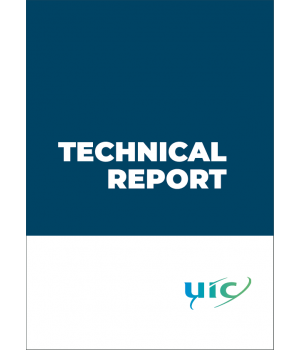
Project - Defect Tolerance Concept (DTC) - Permitted defects and surface properties for axles under maintenance
Though the number of axle breakages is at an all-time low, the sector is still striving to further improve the in-service behaviour of these safety-critical components. The axles used in Europe are mostly UIC-standard or based on uniform UIC and EN design and supply requirements. This project’s goal was to define the permissible surface features of axle defects for maintenance, in order to avoid axle breakages due to surface defects and ensure the cost-effective operation and maintenance of vehicles. Based on the requirements for a “defect tolerance concept” as defined by DIN 27 201 - 11, an analysis was conducted comprising a bibliography, a survey on maintenance and cases of axle damage amongst the European railways, crack initiation tests, and experimental determination of stress resistance. The outcome is an appraisal of defects on the bare axle surface after removal of coating during maintenance, and the classification of such defects into defect classes. The working hypothesis was further refined during the course of the project. UIC defect classes 1 to 4 were defined, each comprising a verbal description, visual depiction, and information on surface roughness. As a result of the project, recommendations are made for the tolerance criteria to be applied on the basis of these UIC defect classes.
"+ "
| ISBN | 978-2-7461-2265-9 |
| Pages | 145 |
Data sheet
- Language
- English
- Edition
- Ed. no.1
- Edition date
- 01/12/2013
- Publication date
- 04/04/2014
- Page number
- 145
- Theme
- Technology Technique
- sku
- E_B169/RP36
- Reference
- B 169 / RP 36
 Cookie preferences
Cookie preferences

